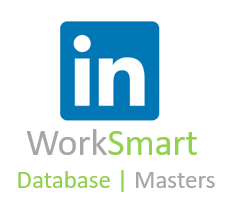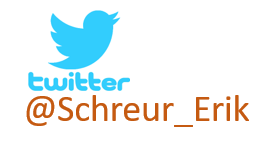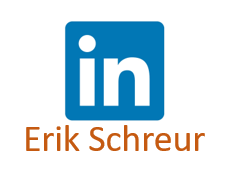As with every new venture in life, we need to take time to reflect on accomplishments and failures. This is how we grow as professionals, and create new opportunities for advancement. Like with any good story, this one begins with – So there I was.
Some background on myself, I’m a US Army Veteran and past Police Officer, currently enrolled as a student of marketing at Davenport University. You may ask yourself, why choose marketing with a background like that? Well as the band ZZ Top poetically put it, “Cause every girl’s crazy ’bout a sharp dressed man.” In all seriousness though, I decided on marketing because I like to talk, and I love to build relationships, two important aspects of anyone in business worth their salt.
So there I was, walking into my Excel class on a cold day in late February as my professor stops me and asked to talk. Oh boy, did I really do that badly on my last quiz? He asked, since I was a student of marketing, if I would be interested in taking charge of the marketing for an upcoming educational event titled Office 365 Day. The offer took me by surprise and once I shook off the initial shock, I jumped at the opportunity to challenge myself and gain experience. As with any College senior driving towards graduation, we are eager to prove ourselves in the field of our study, but quickly realize how under-prepared we are.
Office 365 Day was a one day event hosted at Davenport University in Grand Rapids, Michigan on April 1st, 2017. The event was organized by Microsoft MVP Andy Tabisz of WorkSmart Database Masters, LLC and, with the assistance of dozens of subject matter experts, offered 15 seminars on topics from Word, Excel, PowerPoint and Access to advanced topics including the Cloud, PowerBI and PowerApps. Some topics were for common users and some were more advanced.
When I was first brought onto the Office 365 Day team, there was a little over one month until the event, which offered very little time for marketing campaigns of any sort. The previous marketing team fell apart over the months prior, and there were only about 25 registrants when I began. I knew I needed to jump in quickly, but with such a short time period, I didn’t know where to begin.
So below are the lessons learned from marketing Office 365 Day… some wins and some failures. I hope these lessons will assist you in making smart decisions with your marketing endeavors as well.
Lesson One: Cold calling is hard
Anyone in marketing, sales, or business development will tell you, cold calling is not fun. Prior to marketing Office 365 Day I had never made a cold call in my life. So I spent an hour, read up on “how to make a cold call”, memorized a little sound bite I wanted to say, and dialed my first contact. As soon as the lady answering the phone said hello and asked how she could help me, I began systematically saying my entire planned spiel which probably took over 30 seconds to complete and by the end I was red faced and out of breath. I took a silent sigh, breathing and relaxing, feeling proud I had spewed the entire speech to her error free. Then without pause, she stated they were not interested and promptly hung up. Ouch! After a bit of reflection, and speaking with Andy, I realized I was talking like a robot running a script. I had lost my personality, I hadn’t spoken to the gatekeeper as a human being, and I didn’t sound confident in what I was saying. By the way for those unaware, the gatekeeper is the term reflecting the individual who first answers the phone or occupies the front desk at a business, and they control if you move forward or get shut down. In my fear and excitement of making a cold call, I sounded… very cold.
The solution was to just act naturally and drop the script. Instead of a script, just having a few bullet points jotted down to answer questions or prompt conversation. I took a deep breath, and dialed my second contact. This time when the gatekeeper said hello and asked how she could help me, I greeted her and explained who I was, and asked if she could possibly direct me to someone that would be interested in discussing a free training event, providing her a few details. She said that while it was a very interesting prospect, it didn’t really meet the needs of their organization, and again thanked me and declined. This time however, I felt relaxed, and her declining me wasn’t in regards to my tone or personality, information given, etc., but was instead because the organization I contacted had little use for an event surrounding Office 365. So now feeling slightly more reassured on my ability to now make cold calls, I decided to take a step back and reevaluate who I was contacting to begin with.
Lesson Two: Find your target audience
My issue upon that second cold call, was that I had contacted a large manufacturing company, just because of their size. Like buying a brand new computer without researching first, I realized we weren’t necessarily a good fit. I then began contemplating who would benefit the most from an event catering to development of professional office skills, and created a list. My list looked something like a tactical battle plan, I blame the Army, showing tier one and tier two targets, and methods of engagement. But it allowed me to put thought to paper, and create a guide for future contacts. Among the target audience for Office 365 Day were, staffing agencies with job seekers, professional organizations and universities, IT and computer professionals, and local business societies. Armed with a new list, I set out as confident as Wile E. Coyote with a plan to capture Roadrunner, until I realized with a new list in hand that I had no idea about the best form of contacting these entities.
Lesson Three: Plan your approach and follow up
With my new list I quickly realized, cold calling wasn’t always going to be the most effective form of reaching someone. For instance, business societies often do not have a secretary available to answer calls, and no email listed, forcing either an in person visit to their headquarters or the dreaded “contact us” form on their website. So I began creating a plan on how to approach each target audience, and wrote several sample emails I could modify and use, depending on who it was. I assumed like every decent person out there that returning calls or answering emails was just what we do – yes I’m looking at you, that it’s in our nature to help people, but boy was I wrong. Day after day my emails would go unanswered, voicemail’s would be ignored, and I was receiving very few answers back. Was I really that unbearable to listen too?
So I decided maybe I should try again, people get busy after all, and maybe I should try the opposite of the first form of contact I used. So I went to my sent folder, and found the first email contact I had sent to, and dialed them up. I was greeted by a friendly voice, and explained who I was and that I was just following up in regards to the email I had sent a few days prior. The friendly gatekeeper enthusiastically said they had read the email and were very intrigued, and wanted to know more. Bam! Just like that, I went from feeling defeated to singing we are the champions. That short but successful conversation made me realize just how important follow up is. I wouldn’t learn until some time later, but this approach is known as “The 7 Touches”, and is the marketing strategy of approaching someone over a period of time in various formats, allowing them to internalize and become familiar with you. And while I lucked out in that case with only two touches getting me to second base with my prospect, some often play a much harder game of hard to get. The key I learned, is be persistent but polite, and continue those contacts until you can speak with a decision maker.
Lesson Four: Documentation matters… a LOT
After several days of marketing Office 365 Day, my eagerness led me to work hard, but document little of this work. Andy mentioned there was a google spreadsheet where documentation was being tracked, and I had at that point not made use of it. By the 3rd or 4th day, when I began to make follow-up calls and emails, I was forced to look through my email history and phone contact list to see who I had contacted and when. I was disorganized. So I spent about a half a day updating the google spreadsheet, something that should have taken far less time if I had updated it from the beginning. Once this list took shape, tracking cold calls, emails, and follow-ups became easy. Document, document, document. This lesson was one of the hardest for me to learn and adjust to, but has made the process of marketing so much simpler. This applies to social media calendars, sales pipelines, meeting minutes, and more. If you work in marketing, document everything.
Lesson Five: Time is more valuable than money, manage it
Of all the lessons learned from marketing Office 365 Day, the greatest is probably how important time is. With so little time to market before the start of the event, and while being a full time student and planning a wedding, I had to learn to manage time like never before. I tried making a calendar to balance school assignments and marketing tasks daily, but this didn’t always work, as priorities shifted and needs changed, and I found I spent more time changing the calendar than using it. So instead I created prioritized list, ranking tasks by deadline and the weight of its completion. By doing this, I was able to be fluid enough to make changes, but not be overly wrapped up in maintaining a daily calendar. By doing this I developed a system that I still use today.
In the end, it was a great experience. And I’ve already volunteered to help with future ones, in Colorado Springs, CO and Chicago, IL. My hope is that these lessons save you time, money, and frustration. Learn from my mistakes and my wins, and formulate a marketing strategy that works for you. When the Office 365 Day event went live on April 1st, we had achieved 95 registrants, nearly tripling the number a month earlier. With some hard work, persistence, and a drive to prove yourself to yourself, you can be successful too. For more information on future Office 365 Days, check out office365day.org
Erik Schreur – BizDev
[email protected]





